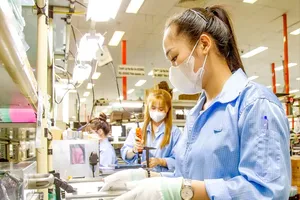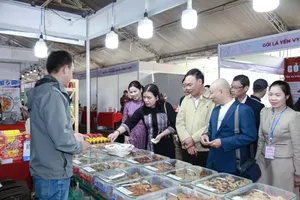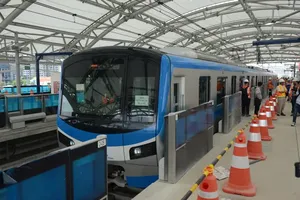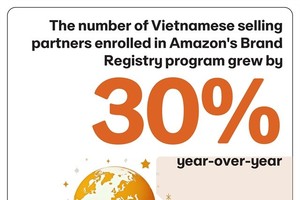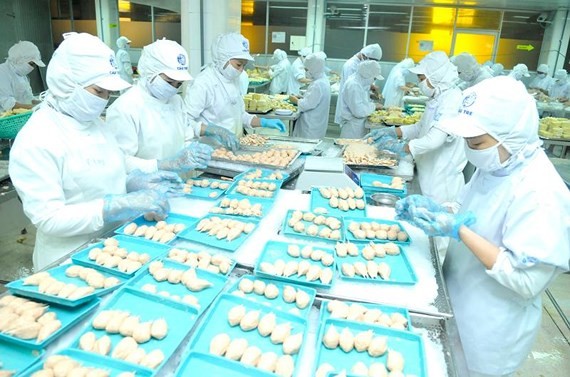
According to the Ministry of Planning and Investment, there were 1,082 newly-registered projects across the country with total investment of $5.34 billion, up 50.4 percent. In addition, there were 1,653 turns of capital contribution and purchase of shares of foreign investors with total contributed capital of $5.68 billion, three times higher than the same period last year, accounting for 52.6 percent of total registered capital. Moreover, 395 existing projects were injected with $2.11 billion, equivalent to 94 percent of that in the same period last year.
Economic experts said that the most unexpected thing in investment activity since the beginning of this year was a change in the position of leading countries.
Accordingly, Japan was no longer the largest investor in both volume and value in Vietnam’s market, replaced by Hong Kong (China) with $5 billion, accounting for 33 percent of total investment. South Korea followed with $1.98 billion, accounting for 13.6 percent. Singapore ranked third with $1.87 billion, accounting for 12.8 percent.
The change in positions of leading countries in investment also led to change in investment structure in Vietnam.
Particularly, among 19 sectors that attract most foreign investment, industrial processing and manufacturing led the list with nearly $10.5 billion, accounting for 72 percent. Real estate was the runner-up with $1.1 billion, accounting for 7.5 percent. Retail came in third with total registered investment of $742.7 million, accounting for 5 percent.
Ms. Nguyen Van Nga, deputy head of the Agency for Southern Affairs of Ministry of Industry and Trade, said that since the beginning of this year, there were lots of firms coming to study about investing in Vietnam. Space of domestic market and export of food processing, garment, textile and cosmetics continued to be an attraction for investors from Taiwan, China, South Korea and Japan. Lately, delegations of enterprises from the US, France and Italy also worked directly with the People’s Committee of Ho Chi Minh City to study the investment environment here.
On the contrary, local firms expressed concern when investment capital from China massively flowed into Vietnam. Explaining the situation, Mr. Nguyen Xuan Hong, chairman of the Ho Chi Minh City Textile and Garment - Embroidery Association, said that investors have been fleeing from China and the safest destination is Vietnam.
This shows that investment environment in Vietnam is attractive. On the other hand, investment preferential policy, such as land rent, corporate income tax, import tariffs on equipment and production line, of the Vietnamese government has been creating several favorable conditions for investment. However, this also contains many risks for local enterprises.
The biggest risk is being imposed anti-dumping duties triggered by more and more trade defense lawsuits in the US market, leading to application of trade remedies at other markets in the world. In addition, it raises concern that export turnover will be dominated by FDI companies. At the present, 70 percent of total export turnover belongs to FDI companies. The rest is of local firms but is expected to be reduced rapidly due to strong attraction of foreign investment in Vietnam’s market.
Amid the situation, several local firms have been struggling to improve their production capacity to reduce their cost prices and increase competitiveness. Authorities have been speeding up connecting firms with banks and credit institutions to quickly solve the demand for capital.
Mr. Pham Thanh Kien, director of the Department of Industry and Trade of Ho Chi Minh City, emphasized that the ministry as well as the department has been promoting brand development for Vietnamese firms. Accordingly, first, they will grant certificates for Vietnamese brands of capable firms. Then, depending on each field, they will have solutions to support and connect firms with suitable markets.
According to Mr. Do Thang Hai, deputy minister of the Ministry of Industry and Trade, the ministry has been working with provinces and cities in the country to build products with local brand and national brand. At the same time, it will connect with foreign distribution network to not only develop Vietnamese products in domestic market but also expand to foreign market and gradually improve the quality of Vietnamese products, helping them to enter deeply in global supply chains and narrowing the gap in export turnover between local and FDI firms.
In order to avoid the spread of antidumping duties which is taking place in the US and expanding to global market, the ministry recommended associations and local firms not to join hands with foreign firms in origin fraud. At the same time, firms should actively improve production process and enhance their legal departments so as to actively cope with possible trade defense lawsuits in the future.







